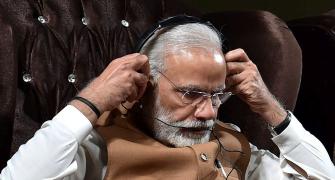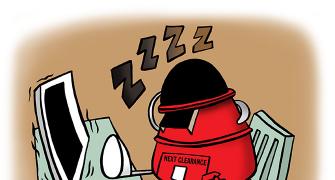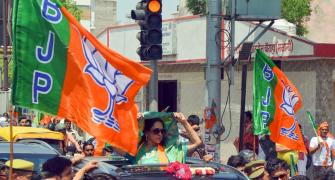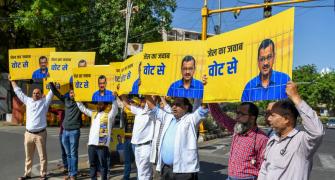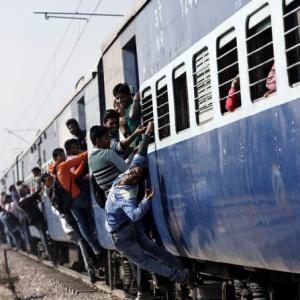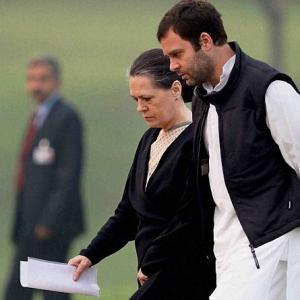The railways continue to lose market share with an actual fall in the number of passengers and stagnant freight tonnage, says Subir Roy.
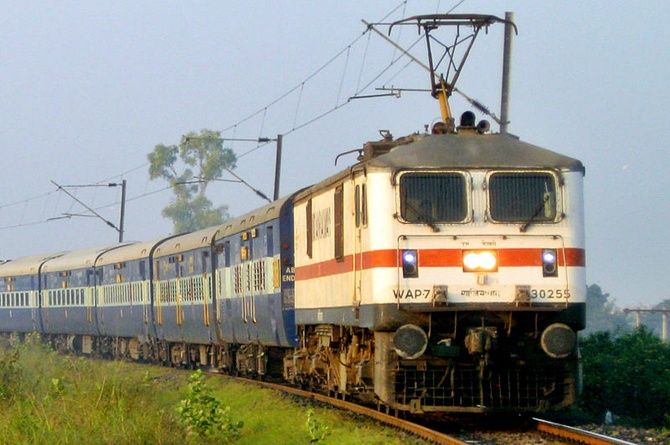 The railways have little to show for themselves at the end of two years of National Democratic Alliance rule.
The railways have little to show for themselves at the end of two years of National Democratic Alliance rule.
The indication by the current railway minister, Suresh Prabhu, that some key reforms may take six or seven more months to come means that half the life of the present government will be over by the time an appropriate enabling environment for a turnaround is put in place.
If any new setup needs a bit of time to produce results, then it will be time to again go to the people for a fresh mandate before there is much to show for five years' effort.
On the other hand, there is absolutely no time to lose. The railways continue to lose market share with an actual fall in the number of passengers and stagnant freight tonnage.
It is not as if growth is being sacrificed to protect margins. The bottomline also has little to show for itself, with the operating ratio (percentage of earnings accounted for by expenses) projected at a high 92 per cent for the current year.
This means there is barely any surplus left to fund future investment from internal resources.
The main effort in the foreseeable future, as far as the bottomline is concerned, will be to service the substantial extra budgetary resources (costly money) which will be secured to fund investment.
But invest the railways must, not just to replace worn out assets (safety demands it) but also to keep growing so that it is not marginalised in a high growth economy.
Mr Prabhu understands this and hence has drawn up a highly ambitious investment agenda of Rs 8.5 lakh crore over a five-year period and a capital expenditure target of Rs 1.2 lakh crore in the current year.
These funds will come from a variety of sources (other than budgetary support), foremost being market borrowing through the Railway Finance Corporation.
Concessional funding will come from bilateral (notably Japanese) and multilateral (World Bank and Asian Development Bank) sources.
Public private partnerships, as also projects partnered with state governments, will be vigorously pursued.
In fact, Mr Prabhu can be credited for daring to think big even when current financials are unpromising.
This is because there is no option but to adopt modern technology to enhance both safety and productivity.
But substantial new investment and absorption of technology cannot happen in a vacuum.
The way of doing things has also to change to get the best out of the new investments.
Recognising a general consensus, Mr Prabhu has put high on his reform agenda a restructuring of the Railway Board and the creation of an independent regulator to rule on revision of fare and freights and also adjudicate on issues resulting from a sharply higher level of PPPs.
It is high time the board had positions corresponding to customer segments instead of just internal functions. But that is not enough.
There has to be a change in the way the board functions. The chairman of the board has to act like a CEO instead of the current practice of simply presiding over meetings.
He has to overrule individual members and push things through, instead of the current culture whereby any proposal opposed by a board member is put in cold storage.
As for a regulator, it is not enough simply to set it up so that price hikes can be depoliticised.
The real issue today is not the inability to rise prices but the dilemma posed by a market which will not take any more price rises.
Both passenger and freight volumes are under pressure and the regulator, in order to be useful, will have to intensively examine whether cost increases are not simply passed through to the customer.
A complex system of cost audit has to be evolved to determine which cost increases are allowable.
A case in point is the major savings that are being made in buying power and the move to do the same with diesel.
This stands at the core of what any management, operating in a competitive environment, must do. Cost saving comes before price administration.
Thus, more than action on specifics, the railways need to fundamentally change the way they do things.
Mr Prabhu has tried to address this by striking at the roots of a fundamental malady of the railways - departmentalism.
He has sought to achieve this by taking the first steps towards merging cardes.
Rivalry and lack of cooperation between cadres is the bane of the railways. But merging cadres is a herculean task.
Doing it haphazardly, without addressing the complexities, can be ruinous, as was the botched up merger of Indian Airlines and Air India which also involved the merger of two pilots' cadres.
Mr Prabhu has also initiated the process (it should have been done long ago) of the railways being brought under an integrated information technology solution, an ERP structure which sits at the heart of companies.
The railways must simultaneously adopt a master plan to go digital, capture every bit of business relevant data digitally so that it becomes available instantly both for decision making and analysis for management insights. (Dynamic pricing, which is essential, is enabled by data analysis.)
Putting the railways on a different track is a massive task.
Hopefully, after much wastage of time, it will now move fast forward on the right track.


